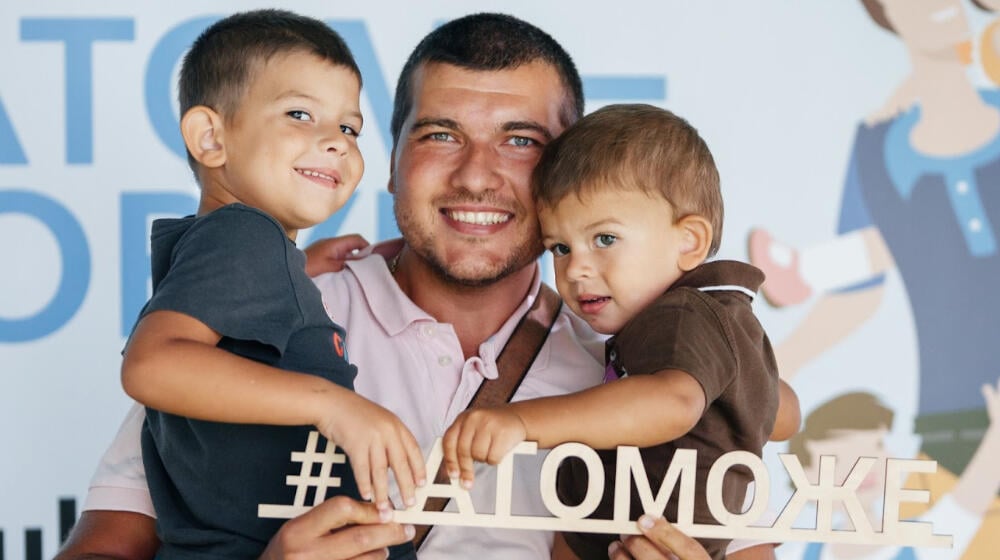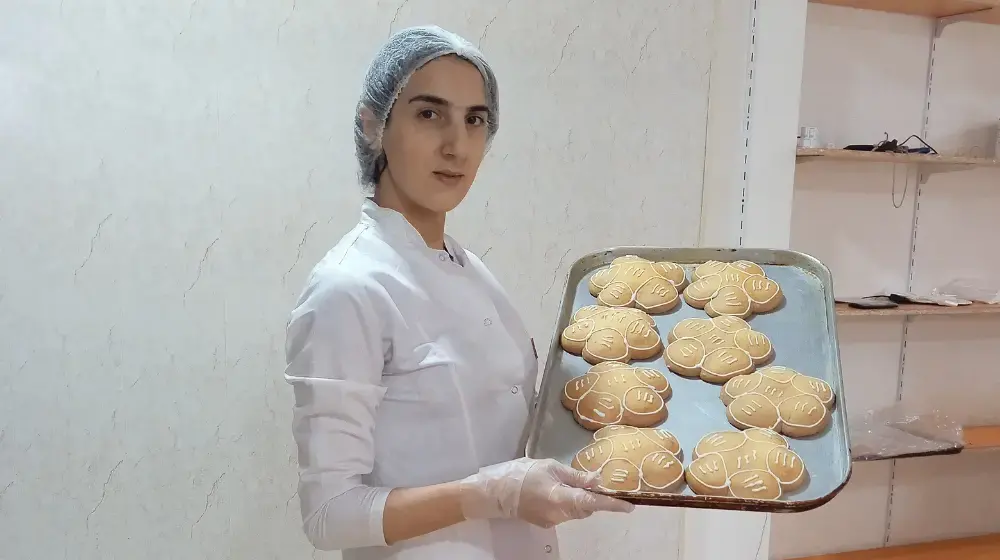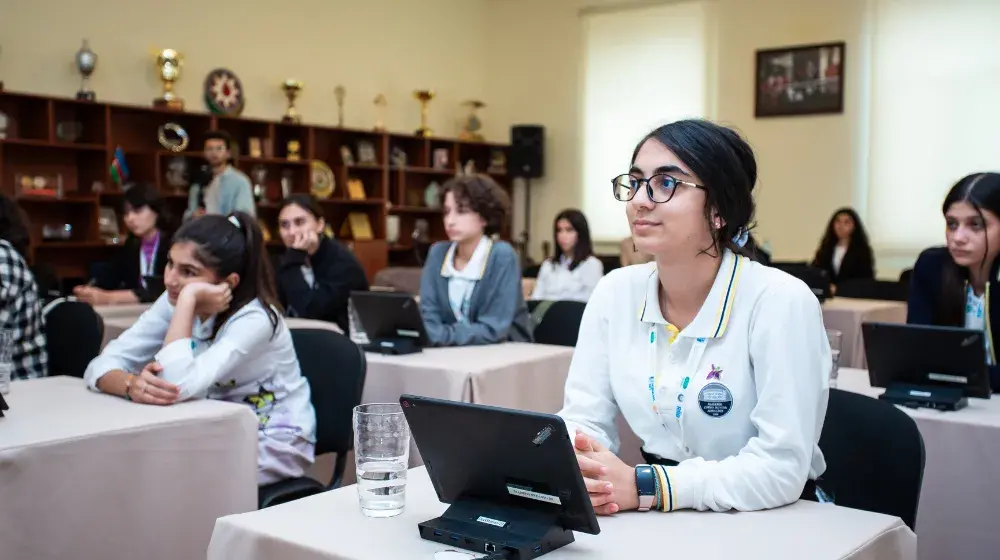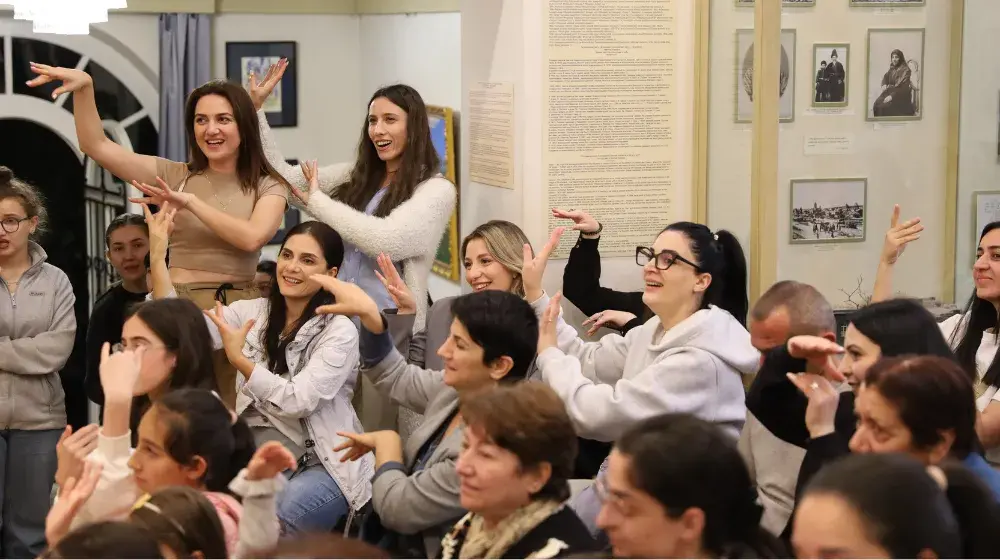“At Father School, we learn what responsible parenting is,” said Ionat Chintea. “How to educate our children, and how we can combat gender stereotypes that ultimately can lead to violence.”
Mr. Chintea is one of over 2,000 men from Armenia, Azerbaijan, Belarus, Georgia, Moldova, and Ukraine who have already benefited from attending the schools that encourage men to become more involved in childcare.
“I already know what kind of father I want to be,” said Mr. Chintea, a student in Moldova. “I will be kind and I will tell my children that I love them. The role of the father in a child's life is crucial. Children who have a father involved in their life have better results in school and easier lifestyles.”
Close to 20 Father Schools have been established so far under the EU 4 Gender Equality: Together Against Gender Stereotypes and Gender-Based Violence Programme, which is funded by the European Union and implemented by UNFPA and UN Women in the EU’s Eastern Partnership countries. The schools promote an active role for fathers from pregnancy to parenthood by helping men build stronger relationships with their children and become more engaged in the caretaking process.
In Europe and Central Asia, women spend on average 2.5 times more time on unpaid care work than men. The COVID-19 pandemic only increased the burden on women. For many women, childcare pressures forced them to leave the workforce altogether or to reduce their working hours. As a result, it is estimated that over 2 million mothers left the labour force in 2020. These changes could have a severe impact on the earning potential of women.
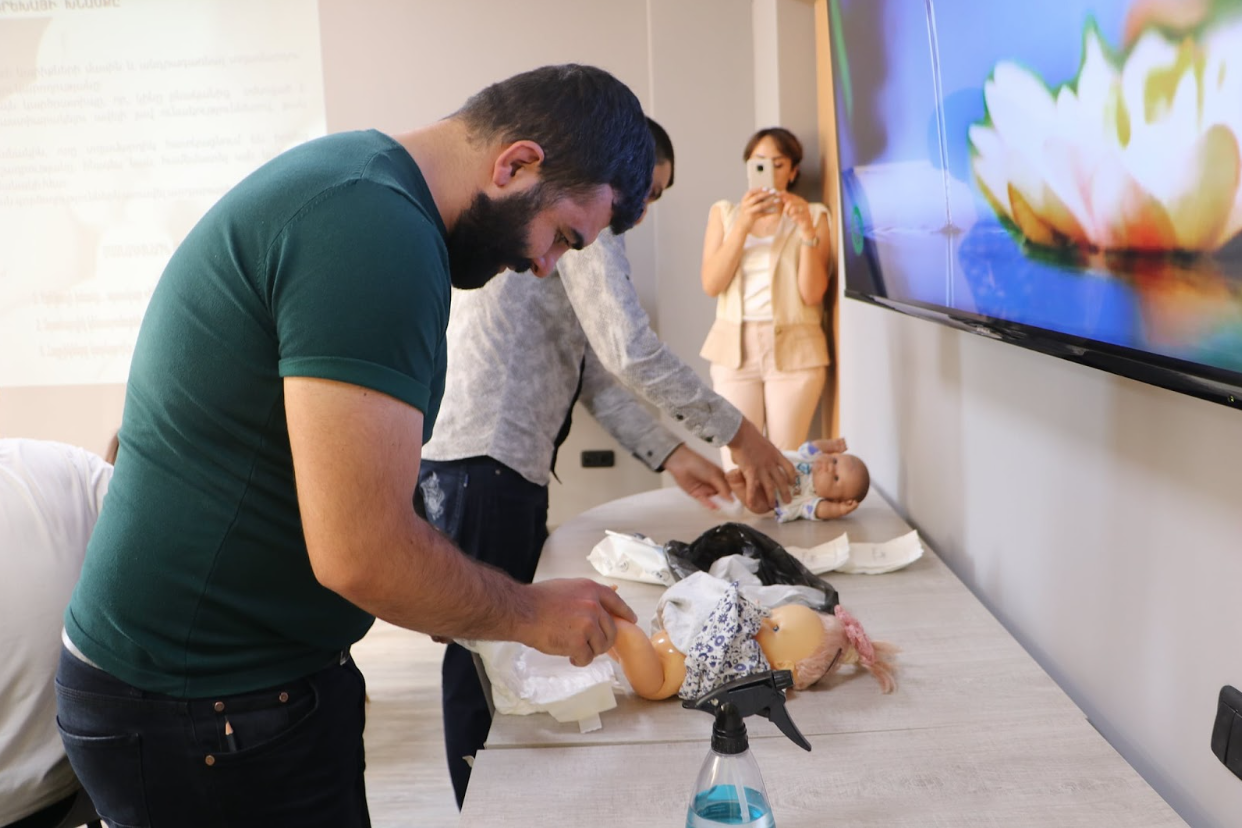
However, multiple studies show that when fathers are actively involved in the upbringing of their children, it not only has a positive effect on their child’s development but it encourages women to rejoin the workforce. Furthermore, being a more engaged father is also good for the father as they "live longer, have fewer mental and physical health problems, are less likely to abuse drugs, are more productive at work, and report being happier than men who do not have this strong connection [to their children]".
While the benefits of being a good father may be obvious, deeply embedded gender stereotypes can make it challenging for men to take an active part in care work. These stereotypes prevent men from accepting the idea that being a caring, considerate husband and father is as valuable as being successful or recognized at work.
“Women shouldn’t be the only ones who are involved in care work,” said Stanislav Grugov, who attended a Father School in Moldova. “Men need to be equally involved. Both should take care of their child’s education and share house chores.”
This publication was produced with the financial support of the European Union. Its contents are the sole responsibility of UN Women and UNFPA and do not necessarily reflect the views of the European Union.

